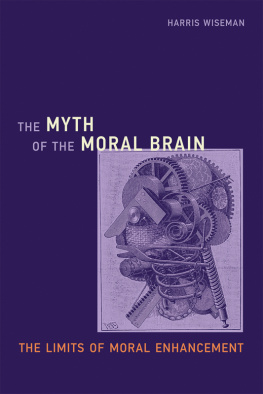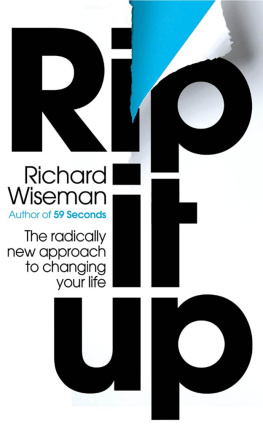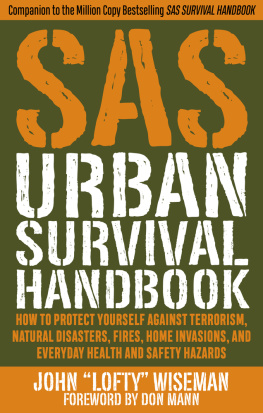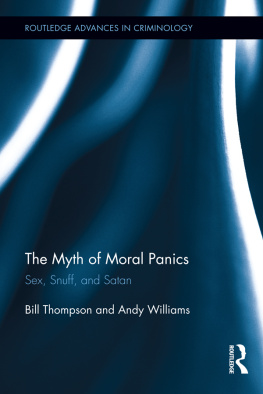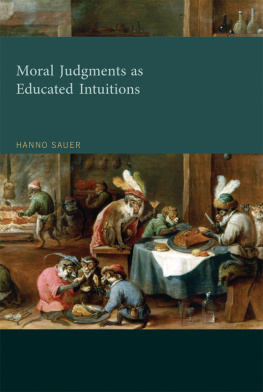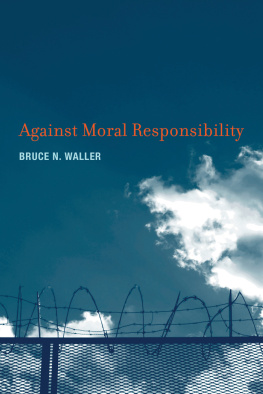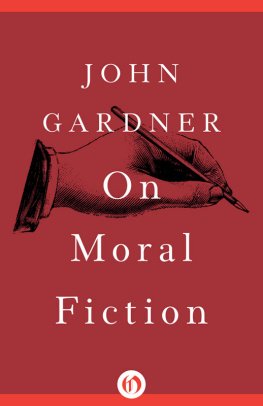Wiseman - The myth of the moral brain: the limits of moral enhancement
Here you can read online Wiseman - The myth of the moral brain: the limits of moral enhancement full text of the book (entire story) in english for free. Download pdf and epub, get meaning, cover and reviews about this ebook. City: Cambridge;Massachusetts, year: 2016, publisher: The MIT Press, genre: Romance novel. Description of the work, (preface) as well as reviews are available. Best literature library LitArk.com created for fans of good reading and offers a wide selection of genres:
Romance novel
Science fiction
Adventure
Detective
Science
History
Home and family
Prose
Art
Politics
Computer
Non-fiction
Religion
Business
Children
Humor
Choose a favorite category and find really read worthwhile books. Enjoy immersion in the world of imagination, feel the emotions of the characters or learn something new for yourself, make an fascinating discovery.
- Book:The myth of the moral brain: the limits of moral enhancement
- Author:
- Publisher:The MIT Press
- Genre:
- Year:2016
- City:Cambridge;Massachusetts
- Rating:3 / 5
- Favourites:Add to favourites
- Your mark:
- 60
- 1
- 2
- 3
- 4
- 5
The myth of the moral brain: the limits of moral enhancement: summary, description and annotation
We offer to read an annotation, description, summary or preface (depends on what the author of the book "The myth of the moral brain: the limits of moral enhancement" wrote himself). If you haven't found the necessary information about the book — write in the comments, we will try to find it.
An argument that moral functioning is immeasurably complex, mediated by biology but not determined by it.
The myth of the moral brain: the limits of moral enhancement — read online for free the complete book (whole text) full work
Below is the text of the book, divided by pages. System saving the place of the last page read, allows you to conveniently read the book "The myth of the moral brain: the limits of moral enhancement" online for free, without having to search again every time where you left off. Put a bookmark, and you can go to the page where you finished reading at any time.
Font size:
Interval:
Bookmark:
Basic Bioethics
Arthur Caplan, editor
A complete list of the books in the Basic Bioethics series appears at the back of this book.
Harris Wiseman
The MIT Press
Cambridge, Massachusetts
London, England
2016 Massachusetts Institute of Technology
All rights reserved. No part of this book may be reproduced in any form by any electronic or mechanical means (including photocopying, recording, or information storage and retrieval) without permission in writing from the publisher.
This book was set in Stone Sans and Stone Serif by Toppan Best-set Premedia Limited. Printed and bound in the United States of America.
Library of Congress Cataloging-in-Publication Data
Names: Wiseman, Harris, author.
Title: The myth of the moral brain : the limits of moral enhancement / Harris Wiseman.
Description: Cambridge, MA : MIT Press, 2016. | Series: Basic bioethics | Includes bibliographical references and index.
Identifiers: LCCN 2015038270 | ISBN 9780262033923 (hardcover : alk. paper) Subjects: LCSH: Ethics. | Brain. | Bioethics.
eISBN 978-0-262-33366-5
Classification: LCC BJ58 .W57 2016 | DDC 171/.7dc23 LC record available at http://lccn.loc.gov/2015038270
10987654321
Glenn McGee and I developed the Basic Bioethics series and collaborated as series coeditors from 1998 to 2008. In Fall 2008 and Spring 2009, the series was reconstituted, with a new Editorial Board, under my sole editorship. I am pleased to present the forty-fifth book in the series.
The Basic Bioethics series makes innovative works in bioethics available to a broad audience and introduces seminal scholarly manuscripts, state-of-the-art reference works, and textbooks. Topics engaged include the philosophy of medicine, advancing genetics and biotechnology, end-of-life care, health and social policy, and the empirical study of biomedical life. Interdisciplinary work is encouraged.
Arthur Caplan
Basic Bioethics Series Editorial Board
Joseph J. Fins
Rosamond Rhodes
Nadia N. Sawicki
Jan Helge Solbakk
First and foremost, I wish to thank my family for supporting me through this time. There are certain persons without whose support and faith this project would have been impossible. The idea of scaffolding is very important to this book, and there can be no question that my family has been the scaffolding without which this book would not have come about. Similarly, gratitude must go to Fraser Watts. Without Frasers ongoing faith and support in my work, I would not have been enrolled at Queens College, Cambridge. Ultimately, it was Frasers willingness to support my application for the funding that came to pay for this project that gave the Faraday Institute, by means of the Templeton Foundation, confidence enough to invest in my ideas as part of their Uses and Abuses of Biology project. Again, without Frasers support, none of this would have been possible. Finally, I would like to thank Philip Laughlin at MIT Press for his honest, no-nonsense approach as acquisitions editor, Christopher Eyer as his indefatigable and ceaselessly helpful assistant in answering my constant barrage of formatting questions, and Katherine Almeida for her patience during the copyediting process.
The wickedness of mankind presented itself nakedly before him, and he became obsessed with gloomy thoughts.
F. Voltaire (2006, 58)
The headlines are big; they are bold. The mainstream news reports Paul Zaks various proclamations that he has discovered the chemical in the brain that makes people good (Zak 2011a); Liat Clark (2014) writes in Wired that scientists have discovered how to cure binge-drinking rats of their alcohol dependency. On the subject of hormone-producing love pills, Hookem-Smith (2012) writes: Forget about marriage counseling, the survival of our future relationships could be as simple as popping a pill. Apparently we are entering a golden age of neuroscience (Goldberg 2014), where the findings pouring out from the the moral laboratory (ibid.), are giving us great insights into how the brain does morality. Such insights promise to give us ever-greater understanding of how to manipulate this moral brain, how to control it. Here a magnetic pulse to different regions of the brain at just the right moment can create instantaneous changes to the kinds of value judgments people make, apparently, and to what they consider to be morally significant.
Yet even among the most scholarly, dubious analogies worthy of the tabloids are drawnMolly Crockett paints a picture of serotonin as some manner of strange philtre preventing our rational and cool-headed inner Jekylls from being overrun by our primitive and savage inner Hydes (2008), and this story is played out at the highest levels of neuroscientific and philosophical study. Yet the contrast of such garish headlines with those things actually presented to us as offering potential for moral enhancement are not exactly what one might expectnothing too futuristic, and very little that is shiny and exciting at all, in fact, but instead some rather crude ideas for how all this might work: nasal sprays, pills, brain scans, gene therapy, and magnetic contraptions attached to the sides of persons heads.
The aspiration to find some means for altering the character of man, and the supposedly urgent need to do so, has a long history. Far back before the advent of modern technologies and the world-destroying dangers we can see that they pose to us, the sense has been that a time bomb exists within man, woven into the fabric of his being. Indeed, the techno-apocalyptic fear can itself be understood as a modern retelling of this same age-old story, that the seeds of humanitys destruction are to be found nowhere else but in humanity itself, and that man, by his very nature, regardless of all his good qualities, has some essential corruption and inborn tendency toward wickedness and destruction. The proposition here is that even good men and women can be easily overwhelmed by pride, stupidity, sloth, and circumstance, the combination of which can make otherwise well-meaning persons, persons who treat their neighbors and various strangers with kindness and respect, into assenting participants in genocides and crimes too unspeakable to mention. So whether it be by passivity, willed ignorance, or through active wickedness, there is some common sense among many observers that there lies in the very fabric of the human being an unassailable gravity, a self-moving and living shadow, looming constantly over all of humanitys efforts to civilize itself.
So prevalent and ancient is this observation that terms for it can be discerned practically everywhere human writings are to be found. We are well familiar with those who speak of the stain of original sin, the echoes of the first disobedience of man before God resounding through the generations, written since then into his very nature. All is vanity, cries Ecclesiastes, the voice of the pinnacle text of biblical Jewish wisdom literature: man hath no pre-eminence above the beasts (Ecclesiastes 3:19, ERV). We have a long tradition of English biologists who are in perfect agreement with him. Here man, understood as the squalid ape, is seen then to be no different and no better than a beast. To this Mary Midgley (2002) offers a less than comforting reappraisal of that proposition, finding the application of the term beast as a condemnation to be rather unfair to the creaturely kingdom, most of whose citizens seem to behave considerably more cooperatively than human beings dothe only species to hold grudges over generations, to kill, torture, and rape for pleasure. We have Freuds (1991) talk of the dynamic unconsciousself-moving, amoral forces which give animation to the human creature. This picture is of the human being as a creature whose conscious existence exists only to negotiate and find compromises between social prohibitions and endless aggressive and sexual needs, and of civilization itself as a vehicle for doing precisely the same. And let us not forget the radical ecologists whose primary conviction is that the human race, by its very nature, is the most heinous plague the planet has ever had the misfortune to endure, a misfortune however that will inevitably, and happily, turn out to be a quite brief chapter of this planets history, fated as we are for self-destruction, apparently soon to cease our gluttonous rape of the earths abundant and rich but not inexhaustible generativity. The list of such pronouncements goes on seemingly without end.
Font size:
Interval:
Bookmark:
Similar books «The myth of the moral brain: the limits of moral enhancement»
Look at similar books to The myth of the moral brain: the limits of moral enhancement. We have selected literature similar in name and meaning in the hope of providing readers with more options to find new, interesting, not yet read works.
Discussion, reviews of the book The myth of the moral brain: the limits of moral enhancement and just readers' own opinions. Leave your comments, write what you think about the work, its meaning or the main characters. Specify what exactly you liked and what you didn't like, and why you think so.

